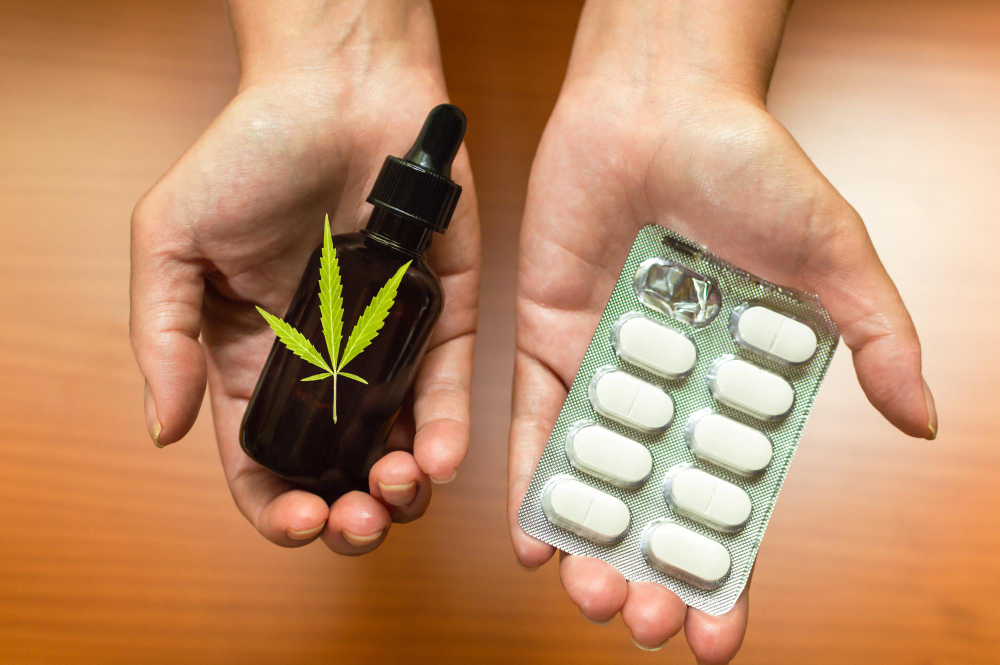Cannabis and Antibiotics: A Closer Look at Drug Interactions

In the ever-evolving landscape of wellness and medication, discussions around cannabis as a complement or contentious component to pharmaceuticals continue to garner attention. As the acceptance and legalization of cannabis grow, individuals find themselves at the crossroads of their medicinal paths, pondering a significant question: Is it safe to consume cannabis while taking antibiotics?
A Complex Conundrum: Understanding Drug Interactions
When we explore the intersection of antibiotics and cannabis, we enter a complex web of potential interactions. It's crucial to dissect the different types of antibiotics, their modes of action, and how cannabis might influence their efficacy or side effects.
Antibiotics: A Brief Overview
Antibiotics, the cornerstone of modern medicine, combat bacterial infections. Whether it's penicillins, cephalosporins, tetracyclines, or macrolides, these drugs work by either halting the replication of bacteria or directly killing the pathogens.
Cannabis: More Than a Plant
Cannabis has been used medicinally for centuries, with increasing scientific validation of its efficacy in pain management, appetite stimulation, and certain chronic conditions. The plant's complex chemical makeup, including cannabinoids like THC and CBD, can interact with the body's endocannabinoid system to produce a wide array of effects.
The Impact of Cannabis on Antibiotics
Research is still catching up with the widespread use of cannabis, and its impact on antibiotic therapy is not fully understood. However, certain implications are worth considering.
Potential for Drug Interactions
Cannabis, when consumed, can affect the body's metabolism of various substances via the cytochrome P450 enzyme system. This has implications for how the body processes not only cannabinoids but also a range of medications, including antibiotics. The competitive inhibition or induction of these enzymes by cannabis may alter the pharmacokinetics and thus the efficacy of antibiotics.
Cannabinoids and Inflammation
Cannabinoids have demonstrated anti-inflammatory properties. This raises the question of whether cannabis could potentially augment the therapeutic effects of antibiotics or interfere with the body's natural defense mechanisms against bacterial infections.
Antibiotic Efficacy and Cannabis Usage
There is anecdotal evidence suggesting that cannabis use may reduce the effectiveness of certain antibiotics. Those with compromised immune systems may be particularly susceptible to any such diminution.
Potential for Compounded Side Effects
Both cannabis and antibiotics can produce side effects, some of which may overlap or be exacerbated when used together. From dizziness and drowsiness to gastrointestinal distress, there is potential for an unpleasant cocktail of symptoms.
Guidance for Consumers
Given the limited data on cannabis-antibiotic interactions, consumers should exercise caution and consult with healthcare providers, especially with potentially serious infections.
Conversations with Healthcare Providers
Open dialogue with a healthcare professional is the best defense against unknown drug interactions. Whether discussing current prescriptions or considering the medicinal use of cannabis, transparent communication is key.
Identifying High-Risk Groups
Certain individuals, such as those with liver disease, may be at higher risk for interactions between cannabis and antibiotics. These groups should be particularly vigilant.
Personal Responsibility
Ultimately, those considering cannabis use while on antibiotics must weigh the potential benefits against the risks. Responsible consumption, understanding one's own health needs, and heeding professional advice can mitigate many of these concerns.
The Road Ahead
As the medical community continues to study the use of cannabis as a therapeutic agent, we can anticipate a more nuanced understanding of its interactions with antibiotics. In the meantime, a cautious and informed approach to combining these substances is prudent.
For a deeper exploration of the topic or to seek further guidance on obtaining a medical marijuana card in Orlando, FL, you can reach out to reputable providers like CSG Meds. Navigating the labyrinth of cannabis and antibiotic interactions requires expertise, and CSG Meds is dedicated to providing comprehensive information and support. Contact them today for insights tailored to your health and wellness journey.